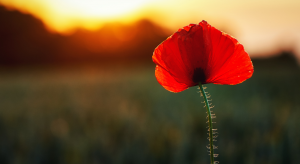Whether you’re single, married, in a relationship, young, or not-so-young, chances are your relational world is under pressure as a result of the pandemic and the various levels of social distancing measures.
Made in the image of a relational God, we are used to – and in fact function at our best – when we have both routine and meaningful interactions with others, visit and engage with friends and loved ones, and participate in hobbies and community events that fill our tanks.
So how do we navigate the next few months in ways that normalise the relationship struggles and equip us to redeem this time in the best way possible? Consider the following :
Find ways to stay connected
Connection with others makes us feel safe, and feeling deprived of this creates a sense of loneliness and anxiety. According to a recent study of 5070 participants by the Black Dog Institute, over 50% of people report feeling lonely during the pandemic.
It’s not as simple as surrounding ourselves with as many people as possible – we need meaningful connections.
The good news is that we can still create and maintain these meaningful connections even as more of us are spending more time at home. As well as scheduling regular Zoom calls with family and friends, you can connect with others through study (invite someone to join you in a course), practicing or making music, joining online interest groups, spending time with your pets, or going for regular exercise with a friend or loved one.
Mind your window of tolerance
This situation we all find ourselves in is a first for all of us. Understanding our built-in physical and emotional reactions can give context to what we are experiencing and how to mind ourselves and others in this challenging time.
One insight is from Daniel Siegel’s window of tolerance. This explores how most of the time we stay within a window where we can tolerate emotions, challenges and stress. We are able to think, choose and behave in ways that are helpful.If this window gets smaller or we experience situations that we find very difficult to tolerate, we bounce out of this window of tolerance into a fight or flight response. This means we can read cues from around us that we perceive as threats or unsafe. Our body and mind react to these cues as we go into survival mode
| ZONE OF HYPERAROUSAL (FIGHT) |
| THE WINDOW OF TOLERANCE |
| ZONE OF HYPOAROUSAL (FLIGHT) |
Steve Porges talks about how we self-regulate and co-regulate to stay in or get back into the window of tolerance.
A challenge at this time is that we are all recipients of an overwhelming amount of fear-related information. Uncertainty and messages of threat are continually streaming to us through a variety of mediums, which results in us feeling more anxious and stressed. This makes our self-regulation (and the co-regulation of our partners and friends – who are also likely experiencing a more narrow window of tolerance) all the more challenging.
Being aware of our feelings and investing in self-care that helps calm our bodies and minds means we are better placed to be able to help our loved ones regulate. We’re in this together !
His and Her Needs
Men and women generally cope with isolation and lockdown in somewhat different ways. Women, for example, are 1.5 times more likely to report higher anxiety, depression and loneliness than men – possibly because they tend to be more relational, and also because they still tend to carry the bulk of housework and homeschooling duties.
But men, too, are finding lockdown difficult. Whilst they tend to have fewer friends, they typically engage with those friends more side by side – at the golf club, at the live music bar, or around a pub table with other mates – none of which is possible in parts of the country with social distancing rules in place.
Willard Harley’s work on the top needs of men and women can be an important reminder, and equip us to carry each other’s burdens (Galatians 6:2) by helping us better meet each other’s needs.
A quick example: men, keep in mind that for most women, meaningful conversations are typically a top need – so making the time to engage in regular dialogue with her will help her to cope. And women, remember that for us guys a recreational companionship can be super important. So if he asks you to accompany him on his daily jog (at least until his mate can join him), consider saying yes and tag along.
Who knows, he just might do the dishes more willingly tomorrow !



Have you thought about becoming a qualified counsellor? It’s a great opportunity to learn how you can extend God's love and grace to the hurting out in the community.
For those who would like to enrol in aifc’s accredited Christian counselling courses we have two intakes per year for courses commencing around the following months:
Enrolment Season - opens approximately 2 months prior to our courses commencing. Enrol online here during our enrolment season.
We also offer two modes of study:
A Master of Counselling course was introduced in 2018.